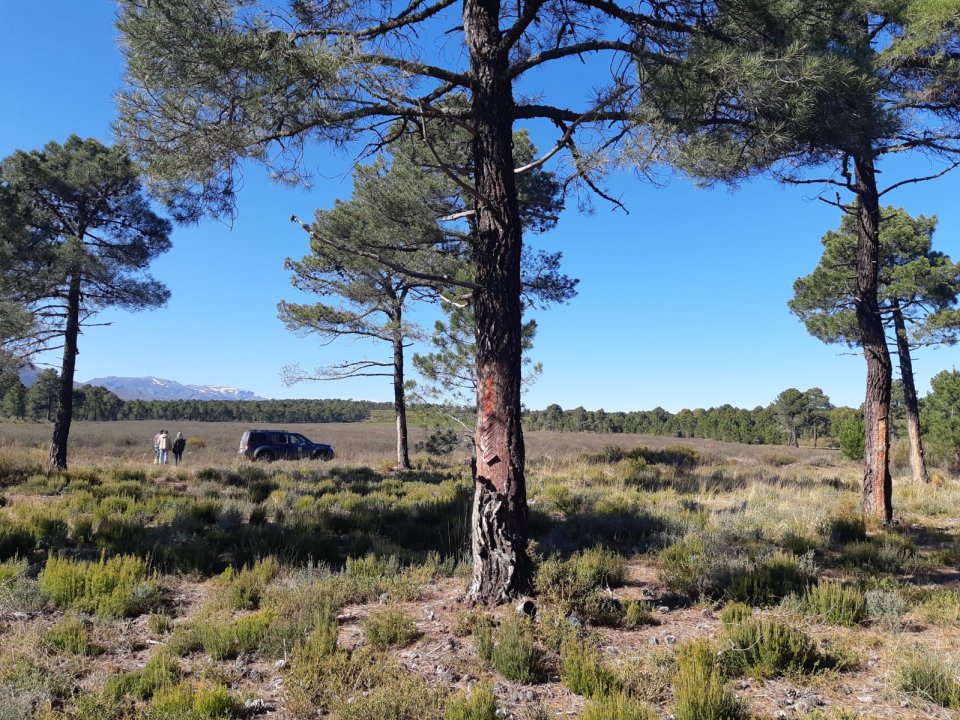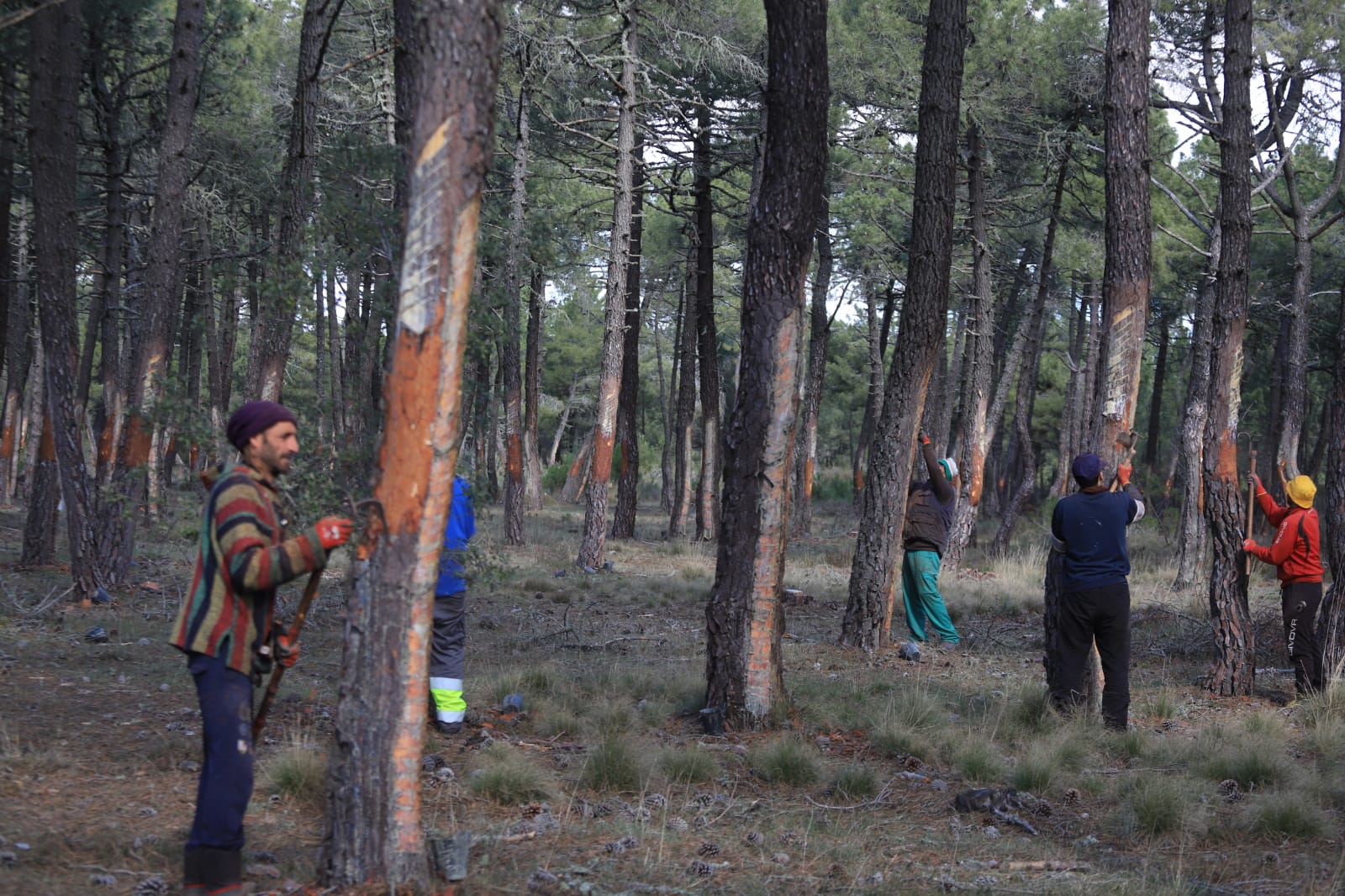
Sometimes, the profitability of a natural resource use depends more on the business model and the entrepreneurial culture on which its exploitation is based, than on productivity factors or technological development associated with the use itself.
An innovative business success case, linked to the natural resin extraction activity, such as Pinaster Servicios Medioambientales, can serve as a reference for private entrepreneurs and public decision-makers and administrators to develop and support efficient business strategies that integrate the resin activity.
In Europe, resin tappers are generally self-employed workers and operate on their own, whose only source of income is the sale of resin.
In the last ten years, many workers have adopted this working model as a way of life. It is a very vulnerable group with a high drop-out rate, sometimes with precarious incomes, which is helpless in the face of the downward volatility of international resin prices.
A cooperative labour model, which integrates natural resin extraction with other complementary activities, will make the profession and the sector itself more sustainable and resilient.
The cooperative Pinaster Servicios Medioambientales, located in Tabuyo del Monte, Spain, bases its business model on the extraction of natural resin complemented by other activities such as active rural tourism, micoturism, production of forest fruits, forestry work and timber harvesting.
Training is another key activity of the cooperative, both in terms of environmental education and resin extraction techniques, within the framework of a business philosophy based on sustainability and a commitment to nature and ecology.
This model protects and strengthens the work of the resin workers, and facilitates the survival of the business in adverse periods, typical of the fluctuating market for natural resin.
The traditional resin tapper profession, like that of other forest harvesters, is a precarious livelihood threatened by major external factors.
Public authorities should stimulate the generation of decent and quality rural employment through highly professionalised employment models, whose activity is capable of adapting efficiently to the business opportunities offered by multifunctional forest management. This initiative should avoid subsidies, but rather stimulate the creation of a network of cooperatives that provide a stable employment framework.
Resin producers must bet on forestry cooperatives, a formula that, in addition, generates benefits for the rural community as a future socio-labour project.
A structure of resin cooperatives would generate quality employment in rural areas. At a sectoral level, it would consolidate the weakest link in the resin value chain, a link that has proved to be strategic following the crisis in global supply chains generated by COVID19.
The implementation of this system is difficult. Resin tappers are reluctant to a cooperative working model based on multifunctionality.
Industries prefer the individual worker, who is easier to incorporate into the activity in the short term and has less negotiating capacity.
Many public administrations fail to recognise the resin industry as a quality labour resource for the maintenance and multifunctional use of forests.
It should promote programs for the expansion of cooperative activity among forest workers, to overcome old sectoral inertia regarding the resin worker model.
The training of resin tappers should go beyond the traditional technical instruction scheme and go into a structure of tutoring and support for entrepreneurs and forest workers of quality and with the capacity to adapt to different tasks and techniques.
Public administrations should implement a territorial contract system based on multi-activity and forest maintenance that serves not only as a tool for remuneration for work and services but also as a forest labour model adapted to the multifunctionality of forests.
Javier Calvo-Simón, javier.calvo@cesefor.com, http://www.cesefor.com/
Further information
Javier Calvo-Simón

Resin tappers team. Alejandro García Ordóñez.
